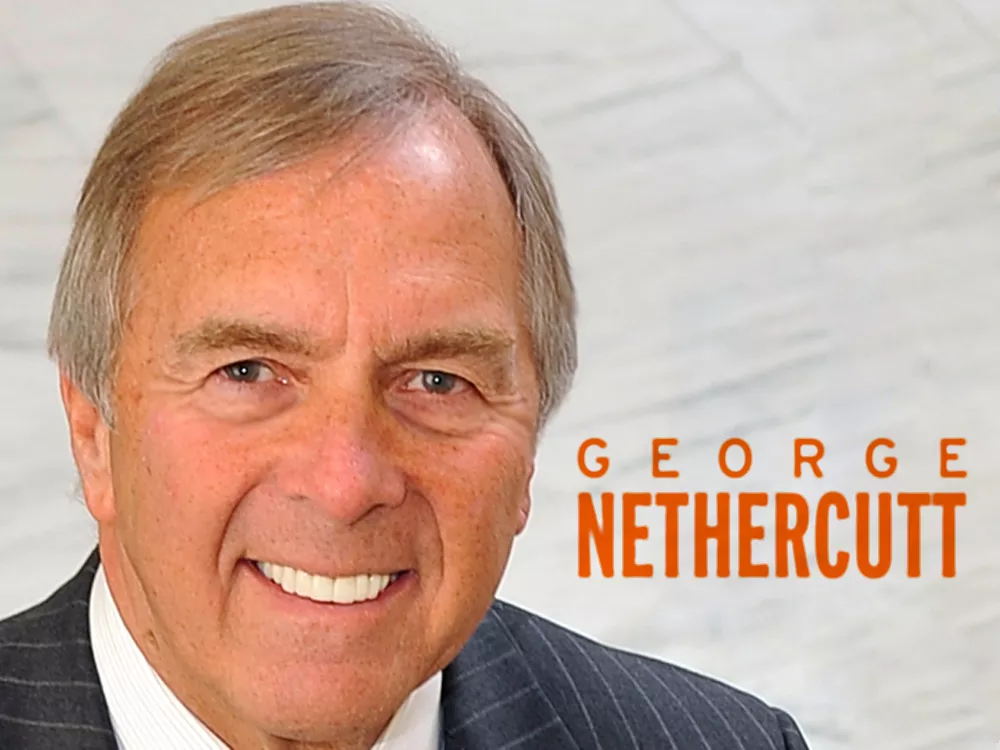So, what’s the mood in Washington, D.C., these days, as the nation’s capital swelters under hot, humid weather — and political — conditions?
A June Gallup poll pegged President Obama’s approval/disapproval rating at 46 percent, Congress’ at 20 percent approval and confirmed that Americans consider terrorism and federal government debt to be the two most important issues facing our country. By a margin of 79 percent, Americans believe those two issues to be “extremely serious” or “very serious” to the nation’s future. With the national economy recovering at a snail’s pace and the creation of private sector jobs nearly non-existent (Gallup shows a -29 economic confidence index with 18.4 percent of Americans underemployed, and 60 percent forecasting a gloomy economic outlook), I looked to bright young college students for their take on current affairs.
From June 18-26, eight Nethercutt Foundation students from six colleges in Washington, Oregon and Pennsylvania lived in Washington, D.C., immersed in the operations of the federal government. (See the students’ blogs at nethercuttfoundation.org.)
Meeting with numerous Democratic and Republican members of the House and Senate, lobbyists, liberal and conservative think-tank representatives, members of the national press, political pundits, corporate representatives and other D.C. luminaries, the students saw up close how government actually works. They also received an earful about how Congress and the U.S. government don’t work, and how much they need to know about government in order to be informed and engaged Americans, better prepared for future leadership.
As the students discovered, neither Democrats nor Republicans are having much fun governing in the 111th Congress, but most elected officials seem at least to be striving for bipartisan solutions. House members complained about the Senate’s inactivity, yet neither side will yield to the principles that define each political party so clearly in a mid-term election atmosphere. One liberal Democrat expressed bitterness toward Republicans for the way Democrats were treated by party leadership when the Republicans controlled the executive and legislative branches of government, and with the tables turned they’re now paying back the Republicans. The fundamental philosophical differences between the two political parties complicate the goal of bipartisanship.
Therein lies the problem: Most Republicans want to rein in federal spending and cut our debt. Most Democrats want to spend more federal money to reverse the economic recession, expecting economic growth to eventually improve the overall economy and help the nation meet its mounting financial obligations. With record debt levels piling up on our nation, the students realize they will be the beneficiaries — and the victims — of 2010 federal policies. The students were awed by their visit to the Pentagon and sobered by the security challenges that face the United States and the free world.
Visiting the Pentagon Memorial honoring the 184 lives lost there on Sept. 11, 2001, brought home to the students that freedom is not free. When Brian Lamb, founder and head of C-SPAN, quizzed them about the names of past historical figures and even recent political personalities, they realized they didn’t know enough about American history or current events. Their visits to the Smithsonian Institution’s American History Museum and other national monuments shed welcome light on the history that all Americans should know about our country. When they visited the associate ambassador from Switzerland, their eyes were opened even wider to the makeup and complexity of America’s place in the world.
Regardless of their political leanings, the students were able to affirm firsthand the Gallup statistics regarding the Obama presidency and American concerns — they heard references to both — and could draw their own conclusions about the challenges leaders face to solve our nation’s problems — and what leadership qualities they admire.
With public officials predicting a future terrorist attack and with the uncertainty that surrounds our national ability to respond, young adults are rightfully fearful of the security unknowns that plague America today. (Full disclosure: I serve on a congressionally mandated defense panel looking at whether the U.S. is prepared to respond to a chemical, biological, radiological, nuclear or high-yield explosive attack. The panel’s findings and recommendations to Congress will be issued by Sept. 15, 2010.)
As the economy lags, the students were advised that Republicans and “new people” will surely gain ground in the 2010 elections. While a complete change of leadership in the House of Representatives (40 seats) is unlikely, they were told it’s still possible.
The prospect of a Republican takeover in the Senate is less than 50-50, even though the Democrats’ margin there will likely be tighter. Without a 2010 Republican takeover, the Obama presidency could be in jeopardy in 2012 because Democrats would still control the legislative branch, unable to blame Republicans for inattention to the problems which plague our nation. And the wars in Afghanistan and Iraq will not get any easier. Nor will the slow economy, immigration reform, Gulf spill cleanup, energy legislation, financial reform or foreign policy in the Middle East, Korea, China or Russia be resolved overnight. And the grinding issue that plagues all debate on all issues — the nation’s debt — will overlay all other issues as voters cast their ballots.
The Nethercutt Foundation students left for home better prepared to meet national public policy challenges with resolve, but stung by the reality that America’s problems are now their problems, too, for they are the nation’s next generation of leaders.
George Nethercutt represented the 5th District of Washington as a Republican in Congress between 1995-2005. His column appears in The Inlander once a month.





















